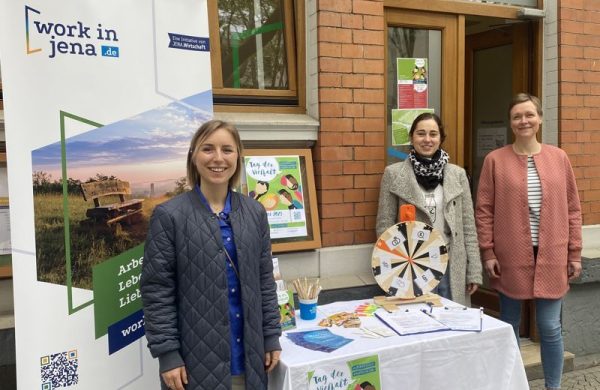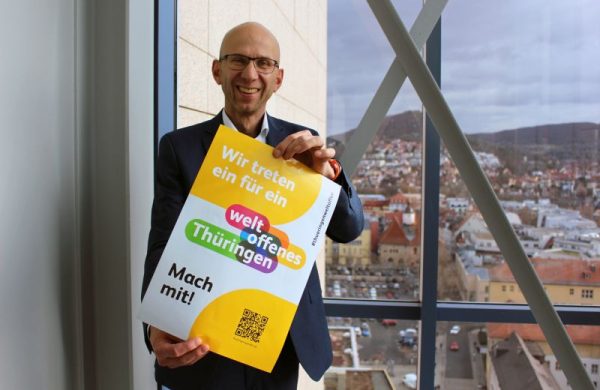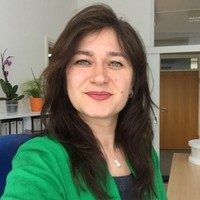In order to address the shortage of skilled workers, many larger companies are turning to international recruitment, thus increasing their chances of attracting qualified candidates. But one should always remember: If companies wish to retain international employees in the long term, they must integrate them – and not just professionally. The Jena-based company TAF mobile GmbH received the i-work Business Award for its successful onboarding work in 2020. The award is presented annually by Jena Business Development (JenaWirtschaft) and the Friedrich Schiller University Jena. Sandra Melle, authorised signatory at TAF mobile, explains in the following interview how the company managed to pull this off and why even smaller companies with a regional customer base should not shy away from hiring skilled workers from abroad…
Ms Melle, TAF mobile GmbH was founded in 2003. Did the company have an international orientation right from the start?
Sandra Melle:
For years, we focused only on the German market when looking for new employees. But eventually we could no longer grow as a company in this way. We simply weren’t able to find suitably qualified candidates any more and therefore had to pursue other avenues. In the beginning, we were somewhat reluctant to look for applicants on an international level. There were many questions. Ultimately, however, we are glad to have made the leap into international recruiting. In retrospect, the whole thing turned out far better than expected. We have all grown on a personal level and adapted to the new situation.
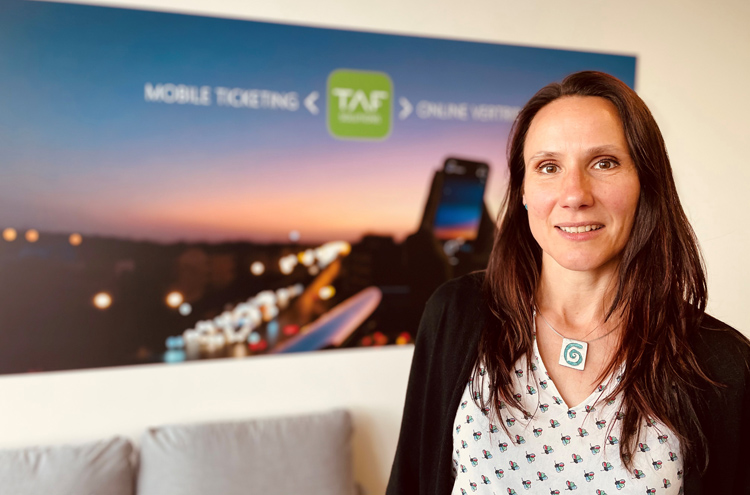
How so?
Sandra Melle:
Take the fear of the language barrier, for instance: Today, the company language is English. The meetings are held in English, and the Confluence* tool documents all processes in English as well. This is now completely normal to us. There aren’t any communication problems either.
* Software for documenting and communicating knowledge and sharing information in companies and organisations
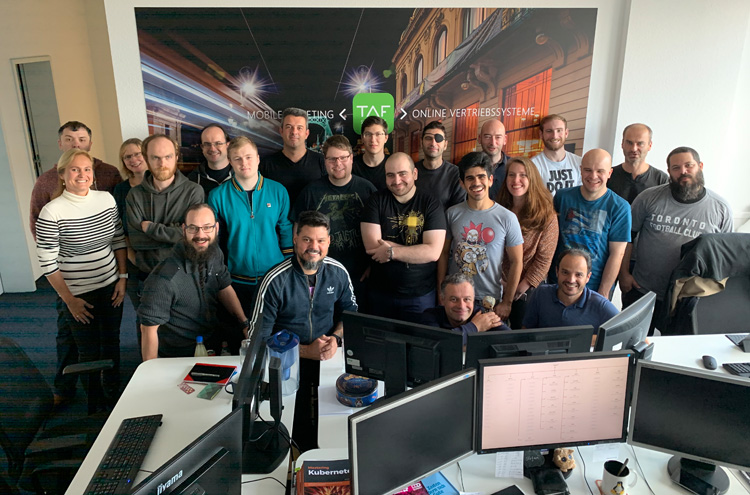
Let’s take one step back to your first job posting outside the German market…
Sandra Melle:
We had reached a point where we realised that we could not find new people on our own. We asked ourselves: Should we outsource recruiting to an employment agency? This is a costly business after all. But the agencies outright rejected us at the time. They said they could not find anyone in the German IT sector for us, and that there was no applicant pool as all qualified persons were headhunted by the companies directly. It was rather sobering. I was told by one agent that it’s impossible to find qualified applicants on the German and European markets. They said to look at South America instead. We then decided to expand our recruiting efforts to Brazil and Argentina. This agent found our first employee from Brazil. Others followed soon after.
Today, the members of your TAF team come from nine different nations. How do you manage to retain international employees in the long term?
Sandra Melle:
We have found that you need a meaningful integration strategy to keep employees from leaving. This includes their families as well. One reason for losing international employees was that their partners could not find work in Germany or weren’t able to acclimate to their new life. The language barrier is still a problem in Jena. Whereas communicating in English is fairly easy in the IT sector, this is far more difficult in everyday life. We take extra care to ensure that our employees feel welcome in their new environment. We have a dedicated employee that helps our non-native speakers with integration-related issues in addition to her day-to-day duties. It’s mostly everyday stuff like making a doctor’s appointment or being present when the electricity meter is being read. These are minuscule and time-consuming tasks that require a lot of attention on our part. Of course, we also do all of this to build employee loyalty. Typically, we also try to involve our employees in feel-good activities such as company events or coffee breaks. But lately, this has become difficult due to the coronavirus pandemic.
Right. Is it still possible to work in a team?
Sandra Melle:
We have a small weekly meeting every Friday where we all get together and have coffee afterwards. We have tried to rearrange this get-together to maintain a sense of community. For example, one developer has created a small quiz for this purpose. It involved collecting facts from all our colleagues’ home countries and turning them into a trivia game. In another week, everyone was given the task of photographing anything that looked like a face. It was a fun activity for the employees to bond over. Still, it is difficult to retain employees in the long term.

Why is that, in your opinion?
Sandra Melle:
Ultimately, it’s not the fault of the team, but often due to the fact that the employees’ partner cannot get accustomed to living here. The city of Jena is at least partly to blame for this. Unfortunately, many newcomers find Jena to be too small. Our non-German employees mostly come from big cities and are used to this kind of environment. They may feel like the language barrier is less of an issue in larger cities like Berlin or Amsterdam, for example, and that they have more cultural opportunities there. We try our utmost to convince them of the contrary, but there’s only so much we can do.
Is there any potential for support here, for example by the “Welcome Center Jena”, which addresses precisely those issues?
Sandra Melle:
We already get a lot of support from the Welcome Center. We were able to gain a lot of know-how in the last few years. But there are still knowledge gaps in some cases. The Welcome Center is staffed with experts who study legal texts and give us advice on specific issues, for example, how to get a residence permit for an employees’ partner. We recently had a situation where the wife of one of our employees needed proof of her German language skills to obtain a residence permit. Although she already had a job and was making her own living, she was unable to take a German test required for her residence permit because of the pandemic. It was a catch-22 situation. The Welcome Center assisted us in this matter, and we managed to find a solution with the immigration office. We are extremely grateful for the support by both the Welcome Center and JenaWirtschaft. At the end of the day, these are the things we are looking for: the sharing of knowledge, having someone to help us with the paperwork and to give us food for thought. And the Welcome Center has all that in spades.
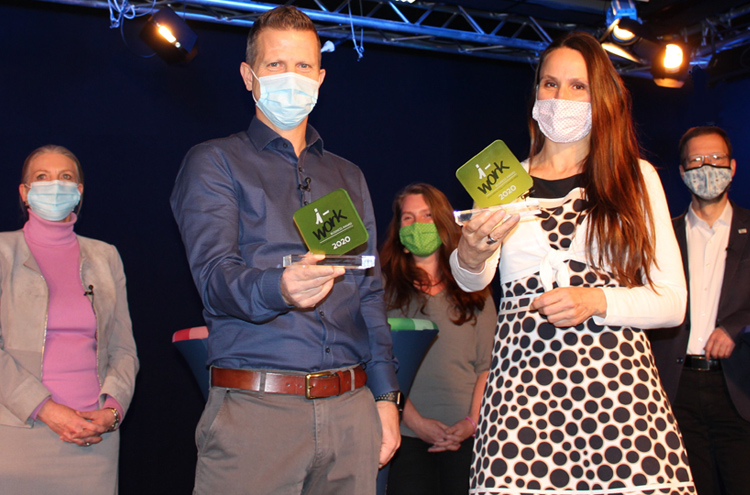
You won the 2020 i-work Business Award in Jena, for which your company had already applied for the second time. What does this award mean to you?
Sandra Melle:
It really means a lot to us. It is proof of the dedication and work of our employees, work that is laborious and often voluntary. For example, they go to flat viewings on weekends. You can’t ask them to do these things. They do them of their own accord to make it work. The award is a way for us to say: “Thank you for your unwavering commitment!” This was the main motivation for us to apply for the award. Of course, it is also an HR marketing tool. The award shows that we are a cosmopolitan company that values its employees. And that working for us, you become part of a great team made up of many different nationalities.
TAF is developing mobile ticket solutions for public transport, among other things. Your customers are primarily located in Germany. What is the benefit of having an international team?
Sandra Melle:
As a matter of fact, we only have German customers. We are very fortunate that they are fluent in English and so are able to participate in our meetings. Specifically developer meetings, which are held entirely in English. The many nationalities all bring something to the table as they are willing to think outside the box. Cultural diversity causes us to operate freely and openly. But of course there are also barriers. For example, we can’t hire project and sales managers that only speak English. Also, the public transport sector is fairly conservative so all documentation and interface descriptions must be in German. This presents a challenge that we have to overcome every day.
What would you say to an employer who is reluctant to internationalise their company?
Sandra Melle:
There’s a saying that comes to mind: “Growth is only possible outside one’s comfort zone.” You can only get somewhere if you are willing to leave the old practices behind. My advice is to have courage. To be more flexible, to be willing to change and to adapt. Your company will be the better for it.
Thank you very much for the fascinating conversation!


